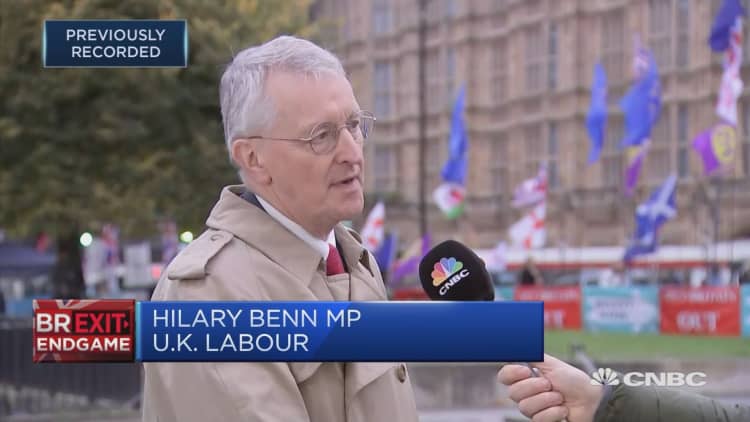U.K. Prime Minister Boris Johnson has been prevented from holding a key vote on the Brexit withdrawal deal he recently agreed with Brussels.
The U.K. government was keen to have a "meaningful vote" on Monday, but this was rejected by House Speaker John Bercow as it's not parliamentary convention to repeatedly ask the same questions to politicians.
In outlining his decision, Bercow said there had been no change in either substance or circumstance since Johnson relinquished a first attempt to have a vote on his Brexit deal over the weekend.
The speaker said any attempt to have the vote today would be "repetitive and disorderly." Reuters data show that sterling slipped slightly to $1.2962 after the statement.
Bercow told the house that to move Brexit forward the U.K. government would be legitimate in its aims by introducing the legislation needed for Brexit, rather than having another "yes or no" vote.
The speaker added that the government would still have time to achieve Brexit by October 31.

Johnson was thwarted by a cross-party group of politicians on Saturday who voted on an amendment which postponed the "meaningful vote" on his new divorce deal. The government could still have pushed ahead with the main motion and asked politicians to approve the deal, but they instead decided to walk out and render it meaningless.
The vote on the amendment also forced Johnson to ask Brussels for an extension to the current Oct. 31 Brexit deadline. Johnson grudgingly asked for an extension to the deadline late on Saturday night, but EU leaders don't necessarily have to accept it.
This week will now see the government present the full Withdrawal Agreement Bill and slowly to try to pass it through both chambers — the House of Commons and the House of Lords. A crunch, decisive vote by lawmakers would likely come later in the week.



